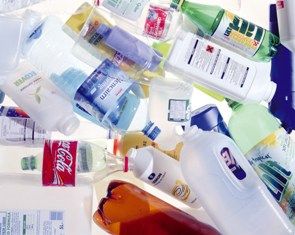
But, plastics recyclers recognise that the falling oil price, while raising the possibility of a reduction in haulage costs, represents a major challenge for the industry. At the top of the list of concerns is the ability for reprocessors to compete with virgin polymer producers as suppliers of raw material.
Already we’ve seen one major player suffer – the news that ECO Plastics, a long-time market leader in bottle recycling, had been bought out of administration by German investment firm Aurelius in December, sent shockwaves throughout the sector.
The long term picture on markets both at home and abroad remains uncertain, and plastics recyclers have been warned that they will need to weather the storm at least through the start of the year. The knock on effect for local authorities and waste management firms is likely to be a reduction in the price paid for plastic scrap.
Contamination
But, volatile oil prices are just one of a host of other challenges that the sector is facing up to at the start of 2015. Contamination remains a major issue with a recent study by WRAP identifying that householders are still confused over what can and can’t be recycled.
Recycling body Recoup, among others, is taking this challenge directly to local authorities with its ‘Pledge 4 Plastics’ communications campaign, but making sure that the public get a consistent message from councils and businesses will be key to the initiative’s success. Ensuring that campaigns such as this have sufficient resources to succeed will also be crucial.
PRNs remain in the spotlight for the plastics industry, with calls for a reform of the existing regime continuing to ring out. With a further increase in the plastic packaging recycling target this year – as well as question marks over the amount of packaging in the market – it looks possible that plastics PRNs will reach a high level, as seen throughout large parts of 2014.
All of these signs point to 2015 being a crucial year for the future of plastics recycling in the UK.





Subscribe for free